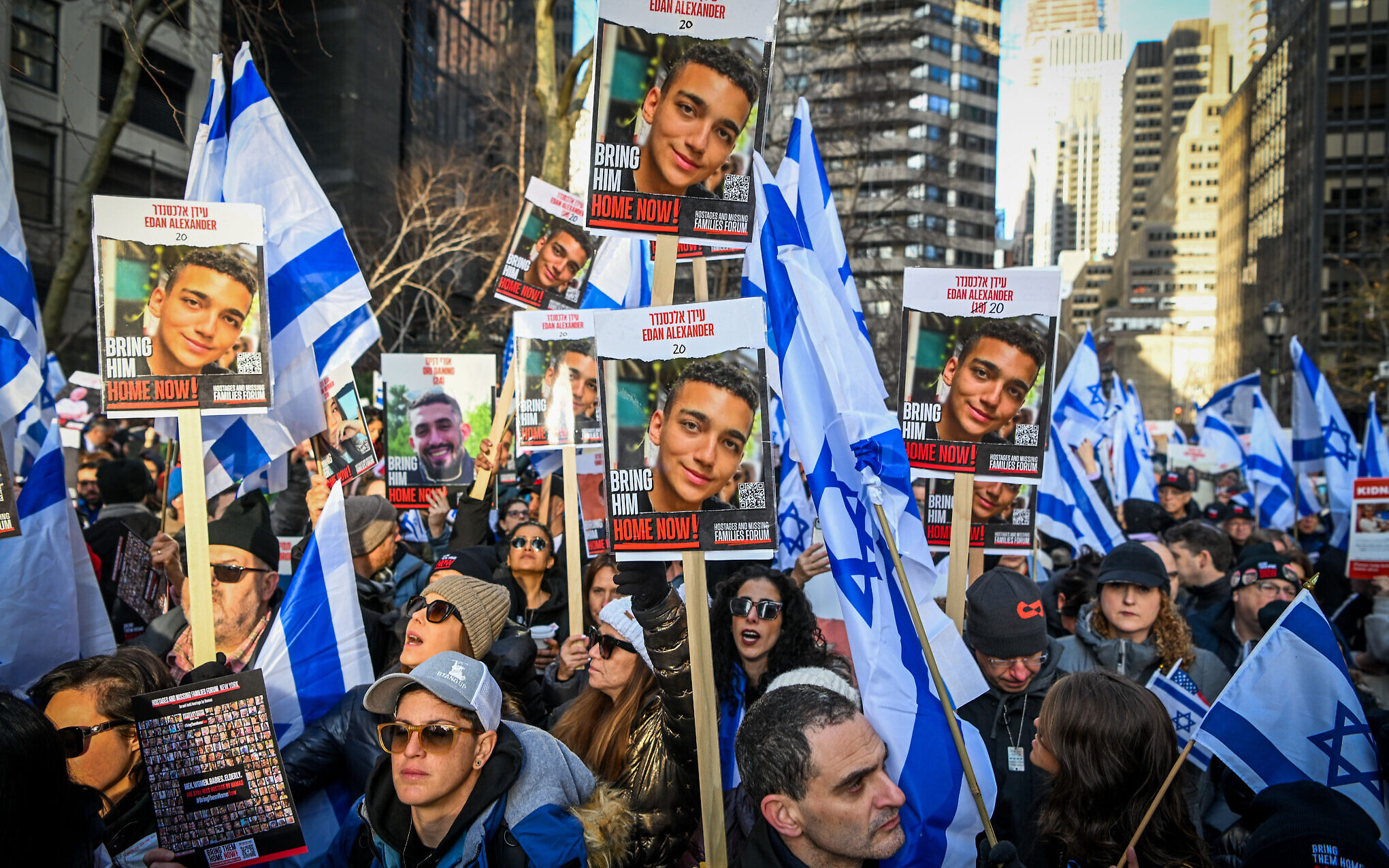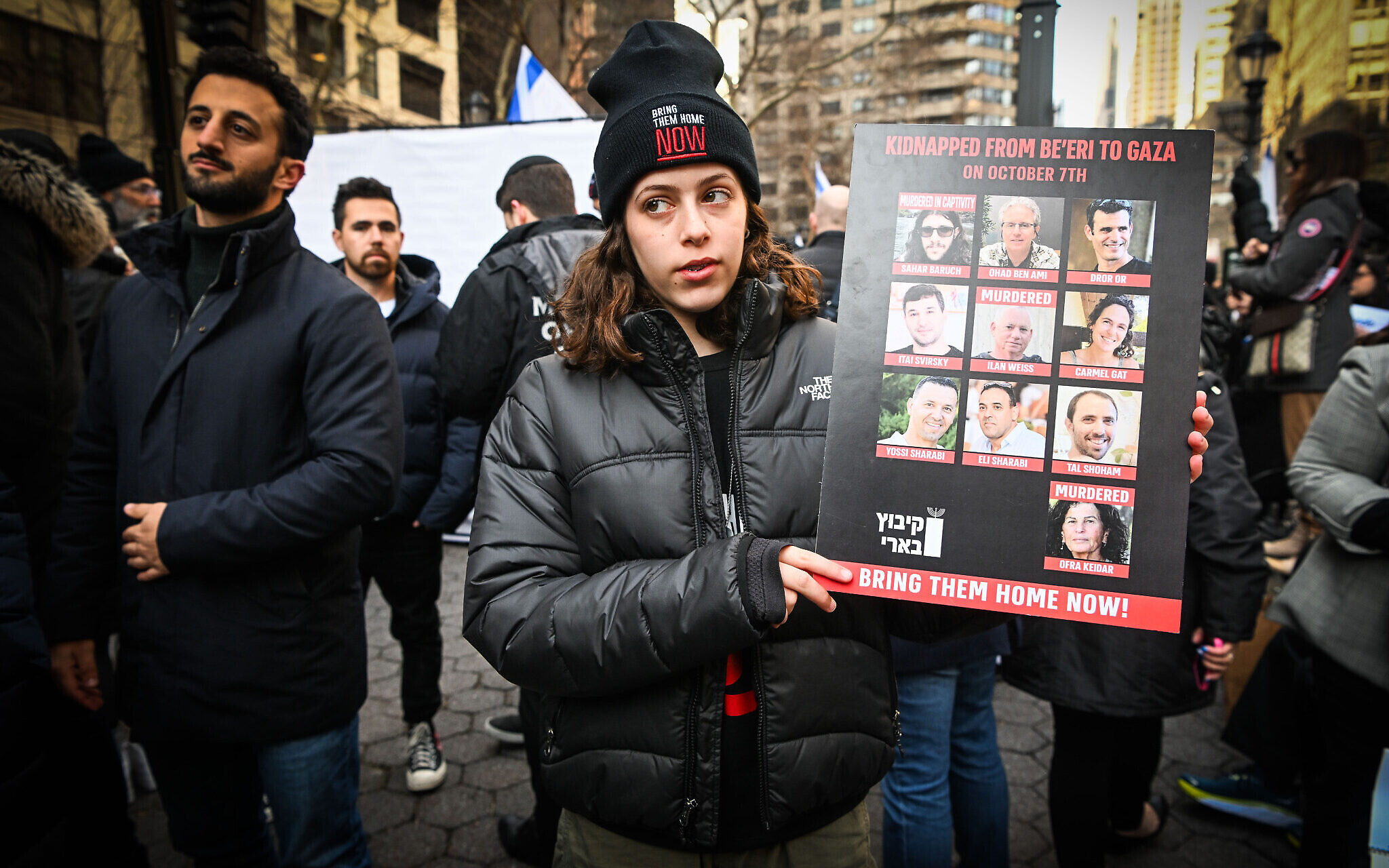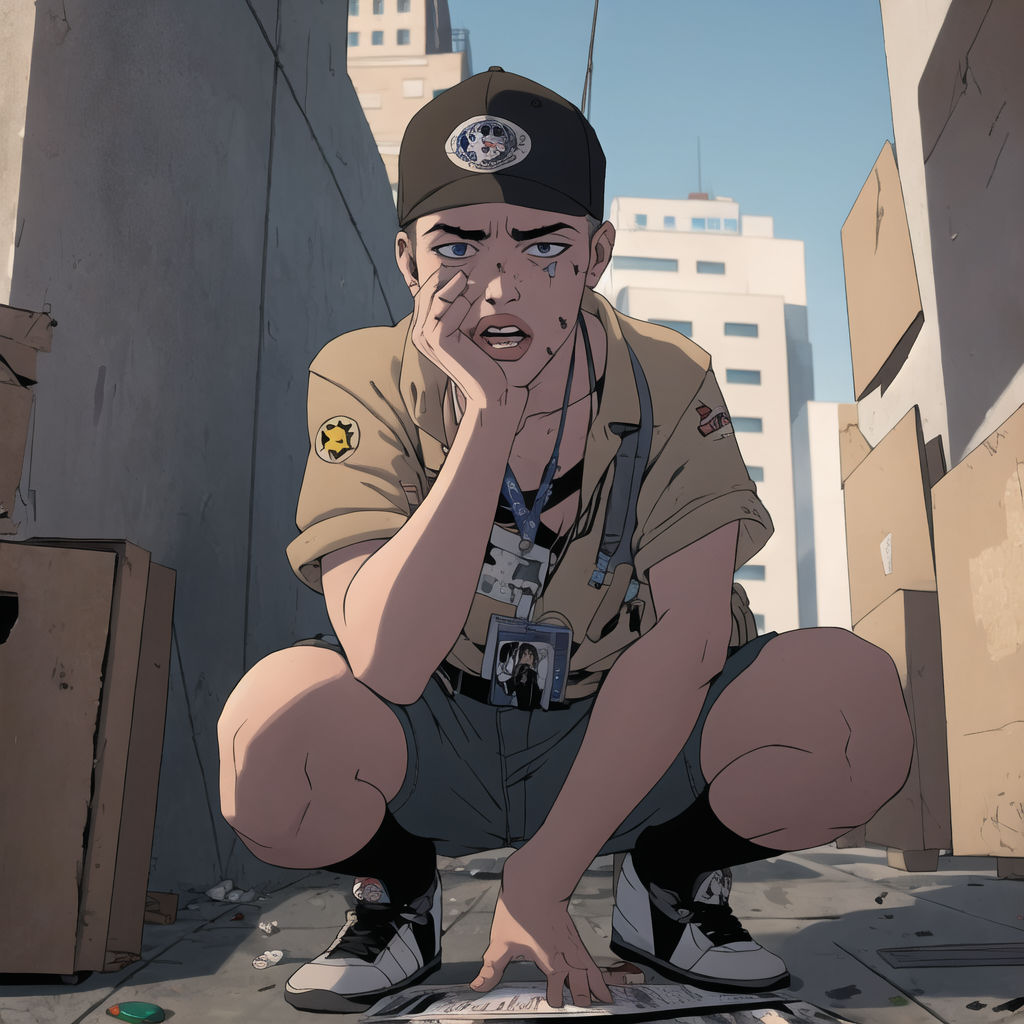120k Rally For Freedom Including A 13-Year-Old Hostage Survivor
In an emotional gathering, 120k rally for freedom including a 13-year-old hostage survivor, as they unite to mark 100 days since the captives were taken, highlighting the urgent need for their release and return to safety.
Author:Morgan MaverickReviewer:Raven NoirJan 15, 202412 Shares12.2K Views

120k rally for freedom including a 13-year-old hostage survivormarking 100 days after Gaza captivity. Hila Rotem Shoshani, a 13-year-old Israeli girl who survived a harrowing ordeal in Hamas captivity, stepped into the spotlight in New York's Times Square.
Her appearance was more than just a personal statement; it was a clarion call for the release of over a hundred hostages still languishing under Hamas control. “I came here today to bring them back home, to let the world know that they have to come home. I know how hard it is there,” Hila stated softly in Yiddish, her voice carrying the weight of her experience and the collective hope of those still imprisoned.

This event, marking the 100th day of captivity for the estimated 132 victims, coincided with a massive rally in Tel Aviv, where an estimated 120,000 people gathered. The rally, one of the largest in Israel over the past year, was not just a mere congregation of numbers; it was a potent symbol of the growing frustration and desperation among the hostages' families and supporters.
From Times Square To Tel Aviv
At the heart of the New York gathering was an hourglass, crafted in Israel to mirror the one in Tel Aviv’s Hostage Square. This hourglass, which is turned every two hours, symbolizes the relentless passage of time for those in captivity and their families. It was made by troubled youth, adding a layer of community involvement and empathy to the situation. "This hourglass is a symbol for all of us—time is running out for the hostages but also for us," explained Gili Roman, whose brother was a former hostage.
The voices of the families resonated with despair and urgency. Yair Rotem, Hila’s uncle, highlighted the grim reality of the hostages: some were severely injured, others possibly subjected to atrocities. Shani Moses Finkelstein, whose grandparents were among the hostages, shared her family's pain and worry, especially for her grandfather still held captive. Their stories, along with those of others at the rally, painted a vivid picture of the human cost of this prolonged crisis.
Government Response And Public Outcry
In Tel Aviv, the massive rally brought forth not only the voices of the hostages' relatives but also notable figures like French President Emmanuel Macron and US Ambassador to Israel Jack Lew. The presence of such dignitaries underscored the international dimension of the crisis. However, the spotlight was on the Israeli government's handling of the situation. Critics, including some of the hostages' families, argued that the government must spare no effort or cost in ensuring the safe return of its citizens, a sentiment echoed by IDF Chief of Staff Lt. Gen. Herzi Halevi.
Israeli Prime Minister Benjamin Netanyahu, in a press conference, promised to exhaust every effort to secure the release of the remaining hostages. However, this assurance was met with skepticism by some families and critics, who emphasized the moral responsibility of the state to protect its citizens.
Cry For Action
The rallies in both New York and Tel Aviv transcended geographical boundaries, uniting voices in a common demand for action. The plight of the hostages and their families has struck a chord globally, turning their personal tragedies into a universal call for empathy, support, and, most importantly, decisive action.

Morgan Maverick
Author
Morgan Maverick is an unorthodox news reporter driven by an insatiable hunger for the truth. Fearless and unconventional, he uncovers hidden narratives that lie beneath the surface, transforming each news piece into a masterpiece of gritty authenticity. With a dedication that goes beyond the boundaries of conventional journalism, Morgan fearlessly explores the fringes of society, giving voice to the marginalized and shedding light on the darkest corners.
His raw and unfiltered reporting style challenges established norms, capturing the essence of humanity in its rawest form. Morgan Maverick stands as a beacon of truth, fearlessly pushing boundaries and inspiring others to question, dig deeper, and recognize the transformative power of journalism.

Raven Noir
Reviewer
Raven Noir is a captivating and enigmatic news reporter who unravels mysteries with a relentless pursuit of truth. Possessing an insatiable curiosity and an astute mind, Raven delves into the depths of complex stories, unearthing secrets that lie beneath the surface. With a masterful grasp of deduction and observation, Raven stands as a beacon of fearless investigation.
In the realm of journalism, Raven is known for his enigmatic presence, drawing people in with an aura of intrigue. Driven by an unwavering passion for unveiling the truth, Raven Noir continues to shed light on the darkest corners of society. Through captivating storytelling and unwavering determination, he challenges conventions and uncovers enigmatic secrets that lie just beyond the surface.
Latest Articles
Popular Articles